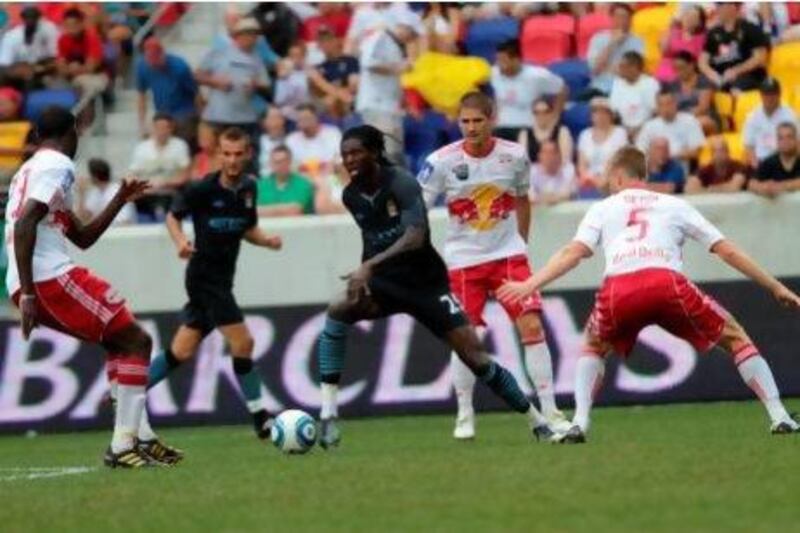Andy Mitten answers some of the key questions behind the link up between Manchester City and the New York Yankees which will create New York City FC, the 20th MLS franchise.
Why New York?
Major League Soccer, the United States' top football league, have long wanted another team in New York, America's biggest city with a metropolitan area of 19 million.
A local MLS team already exist in the New York Red Bulls, but they play over the Hudson River in industrial New Jersey in a purpose- built stadium. There's no team in New York's five boroughs.
The cost?
It costs from $40 million to buy a franchise and enter a club in MLS. Stadiums aren't cheap and are prone to delays. Land in Manhattan is scare, although any new team is likely to build their home in an area with a large Hispanic, football-loving community, like Queens.
Despite wage caps and prudent managements of budgets, few MLS franchises turn a profit. They may in the future, with average attendance cited as 18,807 and rising. More football-specific stadiums are being built, most with space to expand the capacity should there be a demand.
What about the New York Cosmos?
Until recently, a reformed New York Cosmos looked set to be the second New York MLS team. I visited their office in New York's cool Soho district in 2010 and 2011 and spoke to Terry Byrne, one of David Beckham's closest friends, who was heading up the operation.
"Our dream is to play in the MLS," says Byrne, who hoped that the Cosmos can become MLS's 20th club in 2013. "We are working continually with the league and will hopefully have an announcement by the end of this year."
The announcement never came and it wasn't entirely surprising. Cosmos had Eric Cantona as head coach and Pele on board as a spokesman. They had a beautifully designed kits, all their 1970s retro glory and bright young things buzzed about their office in the shadow of a club badge painted on the brickwork.
The Cosmos didn't have a professional team, stadium or fans, because there were no matches to attend. Byrne and his partners, including former Tottenham Hotspur vice-chairman Paul Kemsley, left in 2012, though Cosmos will start a team this year in the NASL, the second-tier league.
What's in it for Manchester City?
Any MLS team with links to Manchester City would be beneficial to the English club. It would boost the profile of the club in the US, which in turn would help it attract the blue-chip sponsors which Manchester United have been so successful in courting.
United's new shirt sponsorship deal with Chevrolet, which starts in 2014, is worth £43 million (Dh158m) a year, the biggest in world football by a distance and twice what Qatar pay Barcelona.
The stadium and training facilities could provide a pre-season base.
Could they swap players?
MLS has rules about the number of international roster slots, although young players could switch between academies.
There are several hurdles, but City and the new team could establish a relationship like the one Manchester United have with Royal Antwerp, where emerging players are sent on loan.
How will they build a team from scratch?
The most difficult part is that most expansion teams - the ones with MLS aspirations - are already established with squads at a lower level.
One person who could be employed in this respect is the former City player Claudio Reyna, who is from neighbouring New Jersey and is working as a technical director with US Soccer.
[ mailto:sports@thenational.ae ]
Follow us
[ @SprtNationalUAE ]






